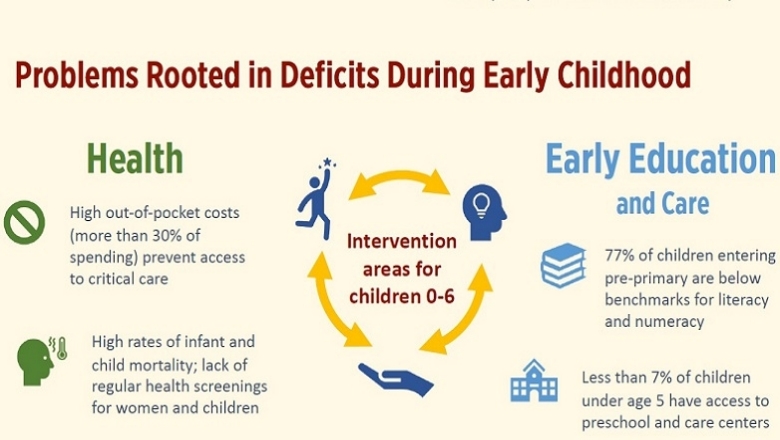In Kosovo, many children, especially those from vulnerable communities, lack foundational education support early in life. For many, low levels of foundational literacy and numeracy can trigger a life-long struggle to catch up or embark on a productive career. The data from PISA performance exams show that high school students in Kosovo, across all income levels, are behind those in most OECD countries, including peers in the Western Balkans.
For Kosovo to achieve a well-prepared future workforce, it needs to further invest in education and human capital. Investments in the early years have the potential to positively compound, supporting the development of advanced technical skills required for the future workforce of the country.
To support Kosovo in improving its early childhood development outcomes, The World Bank conducted a Situational Analysis of Early Childhood Development (ECD) Services in Kosovo as well as a Benchmarking of Kosovo’s ECD enabling policy environment. These reports examine access, coverage, quality and equity of ECD services in Kosovo, taking into account many factors related to a child’s whole development – such as health, education and support system. The results of the analysis emphasize the importance of investing in the well-being and education of young children in Kosovo and provide a roadmap for comprehensive action.
Summary of Key Findings:
- The combined delivery of healthcare, early childhood education and social protection at an early stage of life, especially via preventive services, is instrumental for breaking the cycle of poverty and disadvantage, by reducing exclusion and increasing the efficiency of investment in children.
- A more efficient and comprehensive system of early childhood sector services—even if imperfect—could help to forge a new economic future for Kosovo.
- Returns on investment to high quality early childhood programming are even higher than previously estimated, delivering a 13 percent annual return on investment.
- Children who participate in high-quality early childhood programming have stronger short- and long-term outcomes in education, health, crime and economic productivity. Parents also benefit, with improved adult labor outcomes or both child participants and their parents.
- Through a comprehensive approach to ECD systems improvement, increased access to services, improved referrals and cross-sectoral alignment, Kosovo can make a step forward toward strengthened economic and human potential for generations to come.
More Information
A Situational Analysis of Early Childhood Development Services in Kosovo | Albanian
SABER Early Childhood Development Kosovo Country Report 2021 | Albanian
